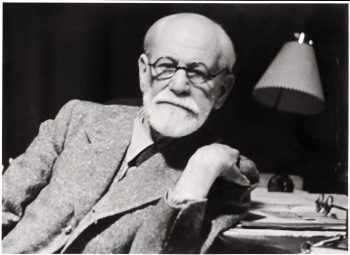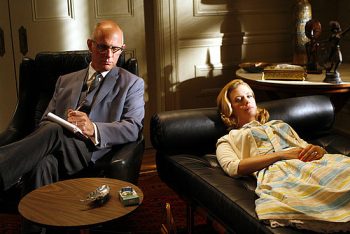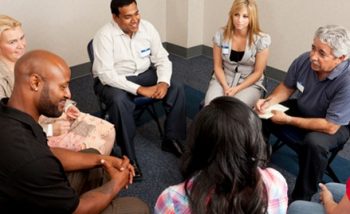 Gratitude can be really painful. Kind of like Rocky Balboa taking a punch. It may hurt a lot in the short run, but it will make you strong enough to win by the next fight.
Gratitude can be really painful. Kind of like Rocky Balboa taking a punch. It may hurt a lot in the short run, but it will make you strong enough to win by the next fight.
Recently, our daughter, Lauren, went on a trip to Africa with her college class. More specifically, they went to Uganda, Kenya, and Tanzania. Much of the time that she was over there, they were in a technologically dark area, with no cell phone access and only able to text us infrequently. One of the first text messages that we received was of her visit to a poor school. It turned out that the school managed to teach and take care of kids for $50/month. Lauren texted us that she was so moved that she felt called to donate $100 to the school. Ouch! I’m grateful that we raised a caring daughter, but that was my $100 that she donated. By the time we saw the text, she was in another dark zone with no chance for us to respond.
Next week was a time of worry. Without the inability to contact Lauren, we had no idea if she was alive or dead. We finally received another text saying that she was called to give away her shoes, and by the way, we need to get her some new running shoes. Oh boy, another chance to be grateful for a generous daughter. I began to wonder if she was going to come home broke and naked. Me broke and her naked.
It was great three weeks later when she finally arrived home. My bank account at last felt a little more secure. But it was not the end of my gratitude when she told us details of her trip. It  involved:
involved:
- Standing 15 feet from a wild white rhino
- Her raft turning over in class 5 rapids on the Nile river
- Bungee jumping 140 feet over the Nile river
This time I was grateful that I didn’t know any of this craziness in advance or I wouldn’t have let her go.
All kidding aside, gratitude is one of the most important tools that we have to help us through the physical and emotional turmoil of life. Dr. Robert Emmons1, who was one of my son’s professors at UC Davis, is perhaps the world’s leading expert on the benefits of gratitude, which includes:
- Stronger immune system
- Lowered pain levels
- Better sleep
- Lower blood pressure
- More alertness
- More positive emotions (happiness, joy, optimism, etc.)
- More social, outgoing, and less loneliness
- More forgiveness
- More helpful
- More generosity (I learned that the hard way from Lauren’s trip to Africa)
- Decreases negative emotions such as envy, regret, and depression
- More stress resistant – i.e. quicker recovery
- Improved self-worth
Personally, I would attest to gratitude making me more stress resistant. I have had a series of stressful events in my life for which I have found a  way to give gratitude. I have used them to thank God for the experiences that have made me a stronger and hopefully better person. Some examples:
way to give gratitude. I have used them to thank God for the experiences that have made me a stronger and hopefully better person. Some examples:
- I frequently had to put in over 100 hour work weeks going through medical school and residency, which was a 7 year period. These were times that were mentally grueling and physically exhausting from staying up 24 and even 36 hours at times. Marines go through ‘boot camp’ to prepare themselves for the battlefield. I think of medical school and residency as ‘mental boot camp’ to prepare for future work. For that strengthening, I am grateful.
- In 2004, I was in a propane fire which took the skin off my face, arms, hands and knees. It earned me a short stint in the burn ward for debridement (having the burnt skin taken off). In the process of putting out the fire, I knocked a disc out in my neck which caused nerve damage and severe loss of strength in my arm. This required bone graft surgery with plate and screws in my neck. I’m grateful for this experience for 2 reasons. First, prior to the fire, my fear was to be a burn ward patient as I saw that as the worst part of the hospital to be. I still respect the combination of propane and oxygen, but I no longer fear being a burn ward patient. Been there, done that, and could do it again if I had to (but please God, don’t make me have to). Second, the fire gave me experience in personally handling extreme pain. In fact, the following year I had gallbladder surgery and did not need to take pain medications.
- Both of my parents passed from cancer. They were both hospice patients, and I was executor for my dad’s will. While I’m obviously not grateful that they died, I am grateful that the experience gave me insight and knowledge that I utilized in writing Live, Love, and Let Go, which has helped many people.
 The benefits of gratitude are indeed reaped by the grateful person. I heard another example of this today. Mohammed Ali died yesterday and his friend and former opponent, George Foreman, was being interviewed. In 1974, Ali beat Foreman, which cost Foreman his title. Foreman could have been bitter over this, but instead he was grateful to Ali. Foreman said he used the fight to tell stories and generate interest in his later ministry work.
The benefits of gratitude are indeed reaped by the grateful person. I heard another example of this today. Mohammed Ali died yesterday and his friend and former opponent, George Foreman, was being interviewed. In 1974, Ali beat Foreman, which cost Foreman his title. Foreman could have been bitter over this, but instead he was grateful to Ali. Foreman said he used the fight to tell stories and generate interest in his later ministry work.
I suspect Foreman’s ‘attitude of gratitude’ is benefitting him today. Foreman and Ali had similar boxing careers and yet Ali developed brain damage felt secondary to repeated head blows. To my knowledge, Foreman has been spared. In an earlier blog, I discussed how nuns with a positive attitude were spared from Alzheimer’s. One can speculate that Foreman’s attitude is similarly sparing him.
Tough times are indeed difficult. A time of grieving, pain, frustration is appropriate. ![snuggie-fleece-blanket-with-sleeves-[2]-218-p](https://jamesabshiremd.com/wp-content/uploads/2016/06/snuggie-fleece-blanket-with-sleeves-2-218-p-350x350.jpg) However, I do encourage you to find something to be grateful for. No matter how bad the situation is, there must be something good about it (i.e. it could always be worse). Give thanks. It could be for a cup of water, a warm blanket, food, a home, friends, family, and of course the saving grace of Jesus. Remember, a hundred years from now, when we are in heaven, all physical and emotional wounds will be healed. For that, we can be grateful.
However, I do encourage you to find something to be grateful for. No matter how bad the situation is, there must be something good about it (i.e. it could always be worse). Give thanks. It could be for a cup of water, a warm blanket, food, a home, friends, family, and of course the saving grace of Jesus. Remember, a hundred years from now, when we are in heaven, all physical and emotional wounds will be healed. For that, we can be grateful.
- Emmons, Robert, ‘Why Gratitude is Good’, Greater Good, University of California, Berkeley, November 16, 2010.

 and reliving their childhood to find the source of their problems. Most modern psychologists are no longer doing Freudian psychoanalysis. Instead, the focus is on CBT (Cognitive Behavioral Therapy) which tries to change thoughts, behaviors, and emotions. CBT may be combined with medications. CBT makes more practical sense by treating patient’s present and future emotions, rather than reviewing the past.
and reliving their childhood to find the source of their problems. Most modern psychologists are no longer doing Freudian psychoanalysis. Instead, the focus is on CBT (Cognitive Behavioral Therapy) which tries to change thoughts, behaviors, and emotions. CBT may be combined with medications. CBT makes more practical sense by treating patient’s present and future emotions, rather than reviewing the past. Our negative thoughts frequently involve beating ourselves up over something we did or didn’t do. We must learn to forgive ourselves in order to stop these negative thoughts. CBT asks us to look at the situation as if it was your friend instead of you. Almost all of the time, we would say that we would tell a friend that whatever happened was not a big deal and we should just forgive, forget, and move on. This technique is very successful. But what if we really did something seriously wrong and we are not able to forgive ourselves? This is where adding the application of Christian faith to CBT is essential. Let’s look at 3 advantages of the Christian faith that can turn our lives to the positive:
Our negative thoughts frequently involve beating ourselves up over something we did or didn’t do. We must learn to forgive ourselves in order to stop these negative thoughts. CBT asks us to look at the situation as if it was your friend instead of you. Almost all of the time, we would say that we would tell a friend that whatever happened was not a big deal and we should just forgive, forget, and move on. This technique is very successful. But what if we really did something seriously wrong and we are not able to forgive ourselves? This is where adding the application of Christian faith to CBT is essential. Let’s look at 3 advantages of the Christian faith that can turn our lives to the positive: which includes helping each other, spreading love, peace, hope, faith, and sharing His Word. This positive purpose to our lives should provide us the drive and need to move forward in positive fashion. We don’t accomplish the purpose by moping, worrying, and agonizing over negative thoughts.
which includes helping each other, spreading love, peace, hope, faith, and sharing His Word. This positive purpose to our lives should provide us the drive and need to move forward in positive fashion. We don’t accomplish the purpose by moping, worrying, and agonizing over negative thoughts.

 Now I have heard some doctors say that CBT and faith are not really compatible. The reasoning was that faith relies on the spiritual belief while CBT relies on western scientific deduction. They felt CBT was what people should turn to when faith was not working to solve the problem.
Now I have heard some doctors say that CBT and faith are not really compatible. The reasoning was that faith relies on the spiritual belief while CBT relies on western scientific deduction. They felt CBT was what people should turn to when faith was not working to solve the problem. I’m a sports fan. I Grew up in the 1960’s watching sports-all sports, but mostly baseball, basketball, and football. In baseball, I was a San Francisco Giants fan back when they had Willie Mays, Willie McCovey, and Juan Marichal. Willie Mays was my favorite; he was a great hitter and could run and catch balls over his shoulder long before Odell Beckham Jr. was even born. He was certainly one of the best players ever. He also did all of this growing up as a black kid in a segregated America. I love seeing someone overcoming such adversities – really something to admire.
I’m a sports fan. I Grew up in the 1960’s watching sports-all sports, but mostly baseball, basketball, and football. In baseball, I was a San Francisco Giants fan back when they had Willie Mays, Willie McCovey, and Juan Marichal. Willie Mays was my favorite; he was a great hitter and could run and catch balls over his shoulder long before Odell Beckham Jr. was even born. He was certainly one of the best players ever. He also did all of this growing up as a black kid in a segregated America. I love seeing someone overcoming such adversities – really something to admire.

 much easier to criticize others. In the old days, people actually talked to each other and therefore chose their words more carefully. Being insulting and critical is simple to do via electronic communication and hard to do via old fashioned, ‘real’ communication. Some in our neighborhood are taking advantage of this electronic simplicity and criticizing the innocent and kicking others when they are down. There have been extreme cases of this sort of cyber-bullying in the news that have even led the victims to suicide.
much easier to criticize others. In the old days, people actually talked to each other and therefore chose their words more carefully. Being insulting and critical is simple to do via electronic communication and hard to do via old fashioned, ‘real’ communication. Some in our neighborhood are taking advantage of this electronic simplicity and criticizing the innocent and kicking others when they are down. There have been extreme cases of this sort of cyber-bullying in the news that have even led the victims to suicide. Consider this:
Consider this: contact suggestions.
contact suggestions. There was a study done of commuters using either trains or buses. They were divided into 3 groups: one group was told to talk to strangers, one group was told to sit in solitude, and one group was told to do their normal commute. Going into it, the ones told to talk to strangers thought it would be a negative experience but they actually reported the most positive experience and an improved sense of well-being.5
There was a study done of commuters using either trains or buses. They were divided into 3 groups: one group was told to talk to strangers, one group was told to sit in solitude, and one group was told to do their normal commute. Going into it, the ones told to talk to strangers thought it would be a negative experience but they actually reported the most positive experience and an improved sense of well-being.5 like that is becoming more and more the case. Families are fractured-single parent homes for instance. Liberals vs conservatives. Red states vs blue states. Politically correct vs incorrect. Everywhere public discourse is becoming less and less civil. Disagreement all over the place. Everybody has their own idea of what they think is important.
like that is becoming more and more the case. Families are fractured-single parent homes for instance. Liberals vs conservatives. Red states vs blue states. Politically correct vs incorrect. Everywhere public discourse is becoming less and less civil. Disagreement all over the place. Everybody has their own idea of what they think is important.

 eople are made to have relationships. The amazing thing is how good relationships can have a positive benefit on our physical health. Let’s look at some of the data1:
eople are made to have relationships. The amazing thing is how good relationships can have a positive benefit on our physical health. Let’s look at some of the data1:


 epression is one of the most common complaints that I see in my general internal medicine practice. Some of these patients are in a very dark mood with a variety of problems such as chronic pain, debility, job problems, financial problems, loss of a loved one, social isolation, and suffered physical and verbal abuse. Time and time again I’ve heard people tell me that it is their faith that keeps them afloat; it is their faith that has helped them endure and fight off any suicidal thoughts.
epression is one of the most common complaints that I see in my general internal medicine practice. Some of these patients are in a very dark mood with a variety of problems such as chronic pain, debility, job problems, financial problems, loss of a loved one, social isolation, and suffered physical and verbal abuse. Time and time again I’ve heard people tell me that it is their faith that keeps them afloat; it is their faith that has helped them endure and fight off any suicidal thoughts. church visits. So, from a pure numbers standpoint, is going to church worth it? Well, if you go to church routinely, then let’s assume you spend 2 hours every week, for 50 weeks a year gives us 100 hours a year spent on church services (this could be more if your clergy is extremely long-winded). If the average life is about 80 years, then 80 times 100 gives us 8000 hours over a lifetime as a ballpark figure for us to spend going to church. There are 8760 actual hours in a year. That means that if you attend church regularly, then you spend about a year of your life going to church.
church visits. So, from a pure numbers standpoint, is going to church worth it? Well, if you go to church routinely, then let’s assume you spend 2 hours every week, for 50 weeks a year gives us 100 hours a year spent on church services (this could be more if your clergy is extremely long-winded). If the average life is about 80 years, then 80 times 100 gives us 8000 hours over a lifetime as a ballpark figure for us to spend going to church. There are 8760 actual hours in a year. That means that if you attend church regularly, then you spend about a year of your life going to church.
 are less than 50%11). Faith is key to improving not only the health, but also the quality of life of these people.
are less than 50%11). Faith is key to improving not only the health, but also the quality of life of these people.